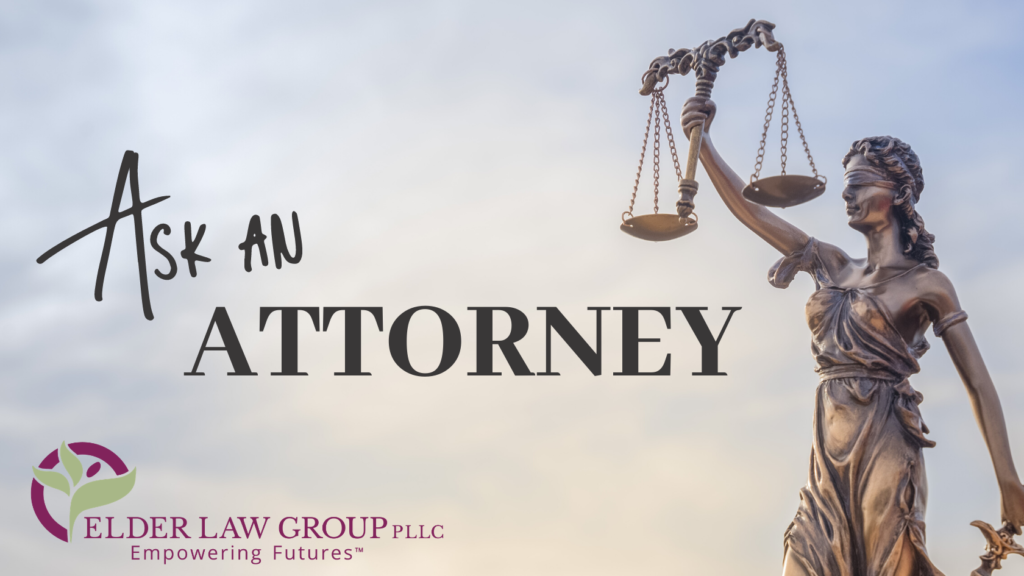
The Executor of your Estate, also referred to as your Personal Representative, has a very important role to fill. The job of the Executor is to administer your Estate according to the instructions that you have laid out in your Will. It is his or her job to settle any final debts that you owe and then distribute your Estate to the beneficiaries that you named in your Will. Your Executor is the person who will speak for you when you are no longer here to speak for yourself. He or she will be responsible for carrying out your final wishes. For more information about Wills, read our article here: http://elderlawgroupwa.com/estate-planning/.
The selection of your Executor is one of the most important decisions that you will make during the Estate Planning process. Most people choose an adult child to fill this role. This is a natural choice – in many families, children are the people who are most likely to be familiar with their parent’s wishes. Additionally, the children may themselves be the beneficiaries of a large share of their parents’ estate. However, not everyone has children, and not all children are appropriate choices to as Executor. What happens then? Other relatives, friends, and professionals can be called upon to serve. In selecting your Executor, there are a few key factors to consider.
1. Assess the job to be done
No two Estates are alike. Some Estates will be straightforward and easy to administer, with simple assets and beneficiaries who all get along. These Estates will be relatively straightforward to administer, while other Estates may be more challenging. For example, an Estate that contains sophisticated investments may be well-served by an Executor with a strong financial background, so you may consider a friend or a relative who works in this field. In contrast, an Estate with challenging family dynamics may be well-served by a disinterested Executor who is not personally involved in the disputes between your beneficiaries.
2. Look to the beneficiaries of your Estate
In choosing an Executor, look to the beneficiaries of you Estate. Many people incorrectly assume that a beneficiary of your Estate cannot also be your Executor. However, there is no reason that a beneficiary cannot also be your Executor. In fact, a friend or relative who is receiving a sizeable share of your Estate has the motivation to ensure that your Estate is administered accurately and efficiently. Further, a person that you care about enough to make them a beneficiary of your Estate will likely be committed to ensuring that your wishes are honored.
If a charity is receiving a substantial sum from your Estate, that charity may be willing to serve as Executor. Not all charities are equipped to take on this role, so it is important that you check with your charity before nominating it to serve as Executor in your Will. Larger, national charities are more likely than local organizations to have the capacity to take on this role.
3. Professional Fiduciaries
If none of your friends or family members fit the bill as Executor, consider hiring a professional fiduciary. Many banks, accounting firms, and financial advisors have professional fiduciaries who are willing to serve as Executors and Trustees. Professional fiduciaries do charge a fee and some may only agree to administer Estates of a certain size.
Even if you do have children, a professional fiduciary still may be appropriate. If you anticipate that one or more of your children will be unhappy with your Estate Plan, a neutral professional may be better equipped to reduce the conflict in the administration of your Estate than someone who is emotionally involved.
If you don’t have children, you still have options when it comes to choosing the Executor of your Estate. Failure to nominate an Executor in your Will means the Court will choose your Executor for you. Regardless of who you choose, make sure that you are the one to make this important decision for yourself.
Do you have questions or concerns about your Will? Call our office at (509) 468-0551 and speak to our experienced staff today!


